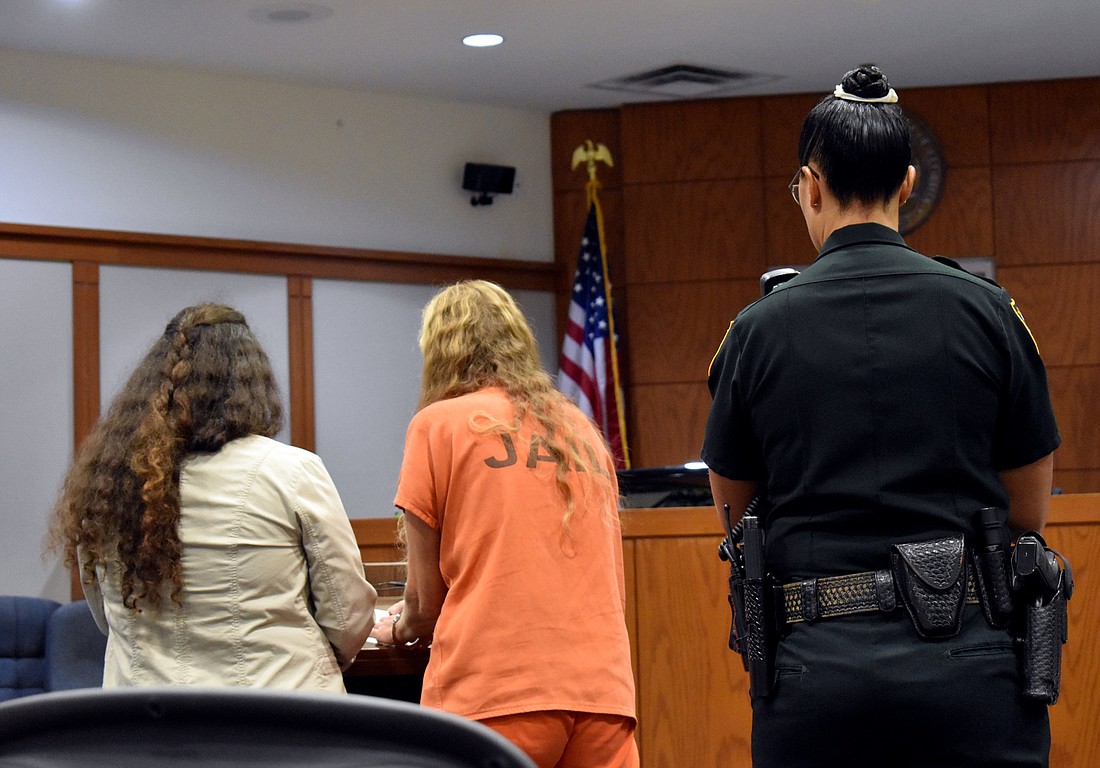- July 18, 2025
-
-
Loading

Loading

Her hair was unruly, and dirt-speckled legs peeked through the small holes in her purple, cheetah-print leggings.
She rocked back and forth as she asked 12th Judicial Circuit Court Judge David Denkin how she can settle her trespassing charge within the next 10 days, so that she can leave town to “take care of her sick dad.”
“I’m leaving as soon as I get my next check,” she said. “I’ve got to get out of here.”
Denkin wielded a mug bearing the phrase “World’s Okayest Judge,” but his patience during the 12th Judicial Circuit Court proceedings, even as threats and expletives are thrown at him, told a different tale.
“I understand you want to leave,” Denkin said. “But we have to resolve this before you go. If I give you an alternative, are you willing to try it?”
For the woman, and about 30 others who were in court Aug. 21, that alternative was Community Care Court, an experimental program that diverts those experiencing homelessness from a criminal conviction.
Rather than spend time in jail, those who commit nonviolent misdemeanors and are experiencing homelessness are paired with a caseworker who helps them get services — such as providing beds, rehabilitation from substance abuse and mental health care — that puts them on a path toward housing or employment.
In the seven months the program has been running, Kevin Stiff, coordinator of homelessness response, said around eight people have graduated and had their criminal charges dismissed.
The program, which for now applies to crimes committed within city limits, is a collaboration between the city, the Suncoast Partnership to End Homelessness and the public defender’s and state attorney’s offices.
In the August session, nearly 30 cases were called, most involving open-container and trespassing violations. Many people have prior convictions and excuses:
“It was raining; I just needed a place to sleep,” a trespasser said.
“I didn’t know I couldn’t drink there,” one snapped at Denkin.
Still, Denkin remains calm, urging every person to meet with a caseworker.
When this happened, Caseworker Krystal Frazier hopped up from her jury box perch and escorted each person out to the hallway for a private conversation. She knows nearly everyone by name.
“We have a lot of repeat offenders, which is why we have this court,” Frazier said. “We try to make sure they know that just because they’ve opted out one time, if they get charged again, they still have the option of saying yes. We give them quite a few opportunities just because we don’t expect people to change whenever we say so. ”
Although Stiff said the program could help keep people out of Sarasota County’s crowded jail,
its prime goal is helping clients resolve situations that cause them to offend in the first place.
“The case managers do a phenomenal job of finding opportunities for our clients,” Stiff said. “The other thing is, it’s a free-will program, so people have to want to make a change in order to graduate.”
Stiff said other communities are approaching Sarasota, which is the first city in Florida to install a program of this kind, for advice.
For Frazier, the answer is simple: ensuring the program and its caseworkers are client-driven.
“The court isn’t the first time we’ve contacted these individuals — it may be the fourth, fifth or 20th time,” Frazier said. “It has to be client-driven because we want to make sure they’re working on something that they’re actually really motivated to work on.”
Inside the courtroom, the woman with the cheetah-print leggings returned with Frazier.
“So what did you decide?” Denkin asked her.
“I’m going to do the program,” she said. “But I need a program where I can’t go out for three months, six months, whatever. I’m not that strong.”
That can be arranged, Denkin told her.
“Thank you for believing in me,” she said.
“It’s easy to do.”